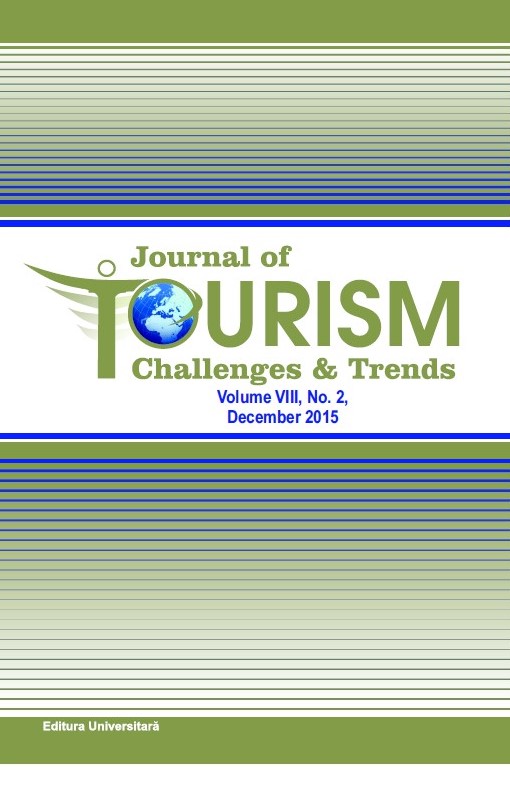NATIONAL HERITAGES, GLOBAL CAPITAL ACCUMULATION AND COLLECTIVE SOCIOECONOMIC IMPACT: A CRITIQUE OF TOURISM INDUSTRY IN KENYA
NATIONAL HERITAGES, GLOBAL CAPITAL ACCUMULATION AND COLLECTIVE SOCIOECONOMIC IMPACT: A CRITIQUE OF TOURISM INDUSTRY IN KENYA
Author(s): Joseph WasongaSubject(s): Tourism
Published by: Asociatia Romano-America a Managerilor de Proiect pentru Educatie si Cercetare
Summary/Abstract: Preservation of national heritages is founded on the idea that these heritages provide a tangible proof of a shared history, having a capacity of binding populations together and offering them a sense of belonging. The above aspiration has the potential to contribute to the society’s realization of certain social-political goals such national cohesion and patriotism. Cultural heritage may as well be seen as a commercial sector especially in the area of tourism. In Kenya, just as in many other countries across the world, tourism has been considered as a key industry. In Kenya there are protected areas that have achieved very high potential goals in tourism industry with diversity of wildlife and scenery, offering opportunities for game hunting, collecting of trophies, fishing, shooting or wildlife film documentaries. Kenya’s warm ocean beaches, cultural diversity and a range of physical features are attractive to tourists. Governments have promoted tourism industry as a way of bringing employment opportunities, and foreign exchange. Thus, tourism forms part of the expansion of global capitalism. Capitalism produces competition for profit maximization and may lead to selfish exploitation of natural resources, as well as national heritages, which may not consider negative effects on the local community and social environment. Accordingly, this paper examines the extent to which exploitation of national heritage in the context of tourism industry in Kenya has balanced profit motives with sustainability and taken into consideration the element of equity and collective social impact especially on ingenuous lifestyle of local communities.
Journal: Journal of Tourism Challenges and Trends
- Issue Year: 8/2015
- Issue No: 2
- Page Range: 55-77
- Page Count: 23
- Language: English
- Content File-PDF

